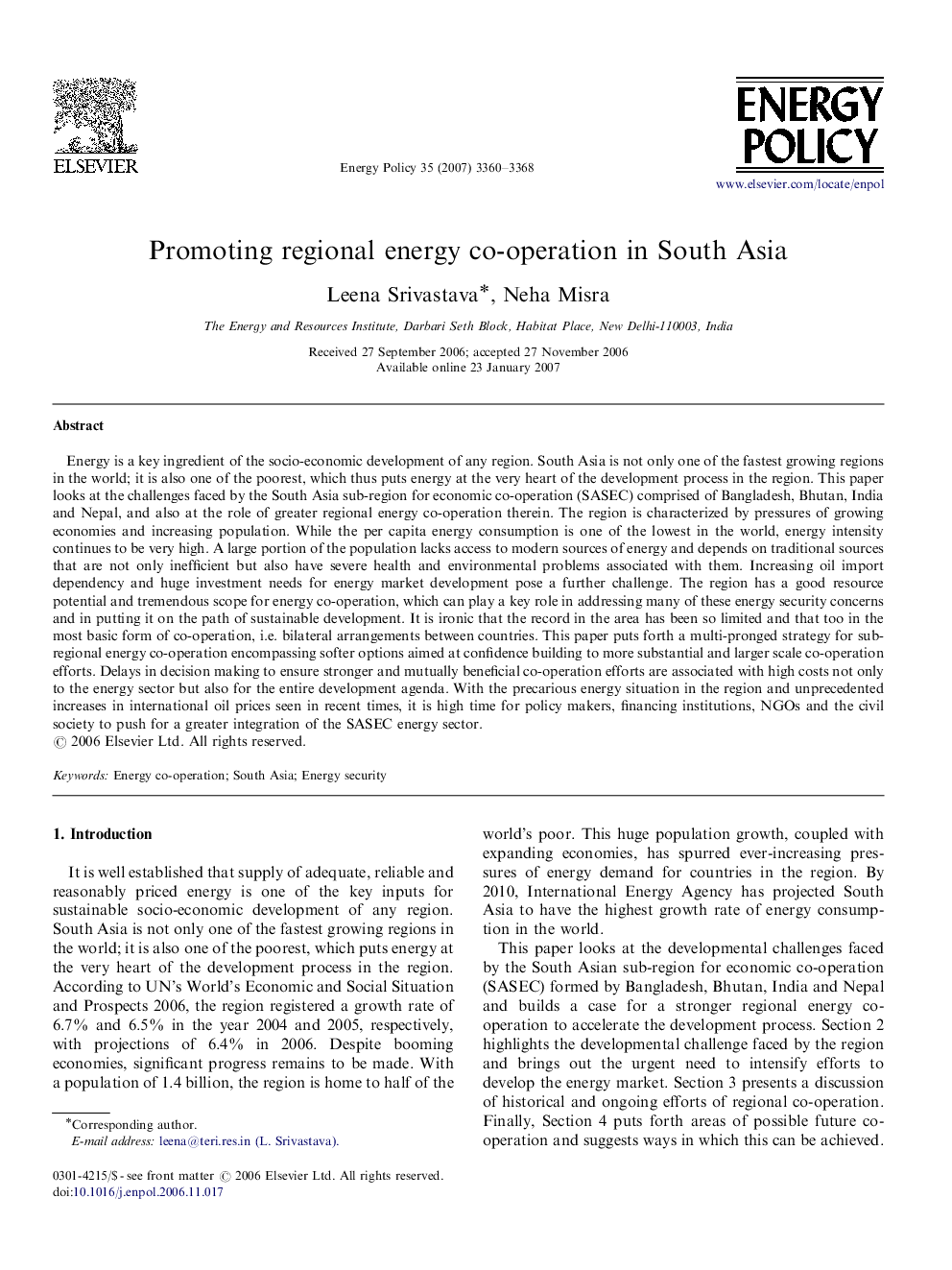| کد مقاله | کد نشریه | سال انتشار | مقاله انگلیسی | نسخه تمام متن |
|---|---|---|---|---|
| 994443 | 936088 | 2007 | 9 صفحه PDF | دانلود رایگان |

Energy is a key ingredient of the socio-economic development of any region. South Asia is not only one of the fastest growing regions in the world; it is also one of the poorest, which thus puts energy at the very heart of the development process in the region. This paper looks at the challenges faced by the South Asia sub-region for economic co-operation (SASEC) comprised of Bangladesh, Bhutan, India and Nepal, and also at the role of greater regional energy co-operation therein. The region is characterized by pressures of growing economies and increasing population. While the per capita energy consumption is one of the lowest in the world, energy intensity continues to be very high. A large portion of the population lacks access to modern sources of energy and depends on traditional sources that are not only inefficient but also have severe health and environmental problems associated with them. Increasing oil import dependency and huge investment needs for energy market development pose a further challenge. The region has a good resource potential and tremendous scope for energy co-operation, which can play a key role in addressing many of these energy security concerns and in putting it on the path of sustainable development. It is ironic that the record in the area has been so limited and that too in the most basic form of co-operation, i.e. bilateral arrangements between countries. This paper puts forth a multi-pronged strategy for sub-regional energy co-operation encompassing softer options aimed at confidence building to more substantial and larger scale co-operation efforts. Delays in decision making to ensure stronger and mutually beneficial co-operation efforts are associated with high costs not only to the energy sector but also for the entire development agenda. With the precarious energy situation in the region and unprecedented increases in international oil prices seen in recent times, it is high time for policy makers, financing institutions, NGOs and the civil society to push for a greater integration of the SASEC energy sector.
Journal: Energy Policy - Volume 35, Issue 6, June 2007, Pages 3360–3368